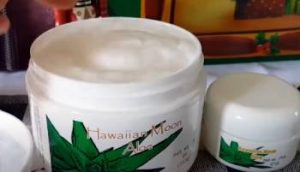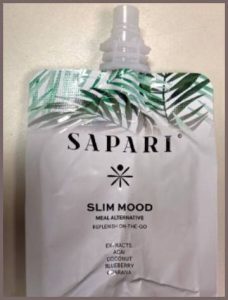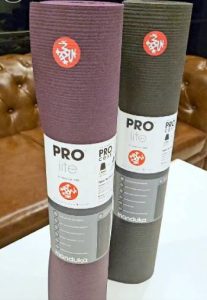If you’re looking for a high-quality essential oil that smells divine, works well in DIY projects, and doesn’t cost a fortune, Hiqili Essential Oil is worth considering. From personal experience, this brand stands out in terms of affordability, versatility, and strong fragrance.
Whether you’re using it for skincare, candle-making, or relaxation, Hiqili delivers a potent scent that rivals some of the higher-end essential oil brands.
I’ve tested several essential oils before, and I’ll be honest—some have been disappointments. Either they’re too diluted, have artificial additives, or just don’t last. But Hiqili surprised me. In this review, I’ll break down what makes this essential oil brand worth your time, how it compares to others, and how to get the most out of it.
First Impressions and Packaging
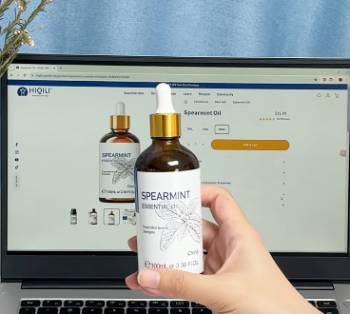
When my Hiqili essential oil arrived, the first thing I noticed was the packaging. The bottle itself is made of amber UV-resistant material, which helps protect the oil from sunlight and extends its shelf life.
This is a thoughtful touch, especially for essential oils, which can degrade if exposed to too much light. The dropper included in the package is a nice addition, allowing for controlled application without unnecessary spills or waste.
Compared to other budget-friendly essential oil brands, Hiqili’s packaging feels more durable and well-designed. Unlike some brands that use flimsy plastic caps or unreliable droppers, Hiqili’s packaging gives off a more premium feel.
Upon opening the bottle, the scent was immediately noticeable. I tried the rose essential oil first, and it had a sweet, floral aroma that was both rich and natural. It didn’t have the synthetic undertones that some cheaper essential oils tend to have, which was a pleasant surprise.
The fragrance was strong but not overpowering, making it ideal for use in diffusers, skincare, and DIY projects. I also appreciated that the brand includes a detailed instruction guide, which is helpful for those new to essential oils. Overall, my first impression of Hiqili was positive.
The combination of sturdy packaging, a convenient dropper, and a powerful yet natural scent made it feel like I was getting good value for the price. While it may not have the certification of high-end brands, it certainly holds its own in terms of presentation and usability.
The Scent and Quality
I’ve tried a handful of Hiqili essential oils, and the fragrance is surprisingly strong and true to the natural scent. Some budget-friendly essential oils smell artificial or overly diluted, but that’s not the case here.
- The orange oil is vibrant and fresh, exactly like peeling an orange.
- Bergamot has a slightly sweet citrus aroma that isn’t too bitter.
- The vanilla oil is rich and warm, though it does have a slight powdery undertone.
- The sandalwood oil wasn’t what I expected—it leans more powdery than woody, but it mixes well with other scents.
- The neroli and ylang-ylang oils are floral and potent, making them great for blending.
One thing I noticed is that some of these oils, like neroli and vanilla, are much cheaper than what you’d expect for high-quality versions. That raised some questions about purity. Some essential oils are naturally very expensive to produce, so seeing them priced so low made me wonder if they were diluted or blended with something else. That said, they work well in DIY products, and I didn’t experience any skin irritation when properly diluted.
How to Get the Most Out of Hiqili Essential Oils?
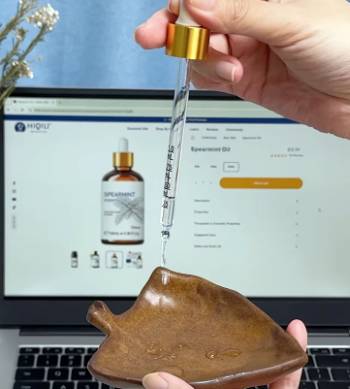
To make sure you’re getting the best experience, here are some tips for using and maintaining your essential oils:
- Store them properly – Keep your essential oils in a cool, dark place to prevent degradation. The amber glass bottle helps, but direct sunlight or heat can still weaken the oil over time.
- Dilute before applying to skin – Essential oils are highly concentrated and can cause irritation if used directly on the skin. Mix them with carrier oils like jojoba, almond, or grapeseed oil.
- Blend wisely – If you’re mixing oils for DIY projects, combine scents that complement each other. For example, vanilla and sandalwood create a warm, comforting blend, while orange and bergamot add a refreshing citrus twist.
- Shake before use – Some oils settle over time, so give the bottle a gentle shake before adding them to your diffuser or DIY projects.
- Test before widespread use – If you’re trying a new essential oil on your skin, do a patch test first to avoid allergic reactions.
How It Performs in DIY and Aromatherapy?
I’m big on DIY skincare and home fragrance, so I put Hiqili essential oils to the test in different applications.
- Body Spray – I mix vanilla oil with jojoba oil and a hint of bergamot to create a long-lasting scent that stays on my skin for over 24 hours.
- Candles and Wax Warmers – A few drops of orange or vanilla oil in melted wax add a rich fragrance that lasts for hours.
- Diffuser Use – The oils work beautifully in an aromatherapy diffuser, filling the room with scent without being overpowering.
- Soap and Lotion Making – The scents hold up well when mixed into homemade soap and lotion, giving them a more luxurious feel.
The potency of these oils is impressive for the price. Even in diluted amounts, the scents come through strongly, making them great for DIY projects.
Pros and Cons of Hiqili Essential Oils
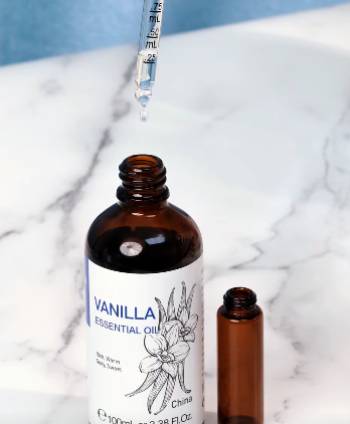
Pros:
- Affordable compared to premium essential oil brands
- Strong and lasting scents
- Great for DIY projects like body sprays, candles, and soaps
- Comes with a dropper for easy application
- Amber glass bottle protects against UV damage
- Good customer service if there are issues with packaging
Cons:
- Some scents, like sandalwood, don’t match traditional expectations
- Pricing on rare essential oils seems too low to be completely pure
- Dropper quality has been inconsistent in past versions
- Bottle caps can sometimes be difficult to open after repeated use
How Hiqili Vs. Other Essential Oil Brands
- Hiqili Vs. Plant Therapy
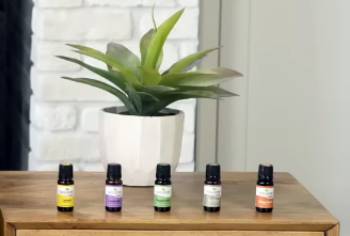
Plant Therapy is known for its rigorous third-party testing and transparency in sourcing. While Hiqili offers strong scents at a budget-friendly price, Plant Therapy provides GC/MS test results to verify purity.
Hiqili’s oils work well for DIY projects and diffusers, but Plant Therapy’s commitment to quality makes it a better choice for those prioritizing purity and therapeutic benefits.
If affordability is your main concern, Hiqili wins. But if you want certified, high-quality essential oils with detailed ingredient sourcing, Plant Therapy is the safer bet. It comes down to whether you value lower cost or verified purity.
- Hiqili Vs. Young Living
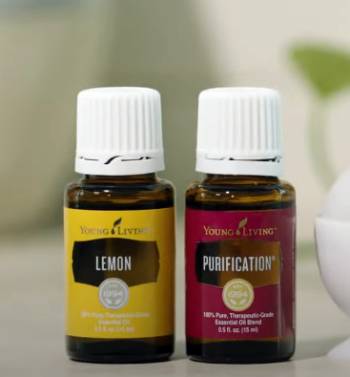
Young Living is a premium essential oil brand with a reputation for high purity, extensive testing, and a proprietary Seed to Seal process. Hiqili, on the other hand, is a much more affordable alternative but lacks the same level of transparency.
While Young Living’s oils are often considered therapeutic-grade, they come at a significantly higher price. Hiqili’s scents are strong and effective in home fragrance and DIY use, but they may not have the same level of testing. If you’re on a budget and need good performance, Hiqili works, but Young Living is for purists.
- Hiqili Vs. NOW Essential Oils
NOW Essential Oils is another budget-friendly brand with a long history in the wellness industry. Like Hiqili, NOW offers affordable essential oils, but they provide more transparency about ingredient sourcing. Both brands deliver strong scents, making them good choices for diffusers and DIY products. However, NOW has more credibility, given its established reputation and wider distribution in health stores. If you’re looking for an inexpensive option that’s easy to find, NOW is a solid pick. But if you prefer a slightly more intense fragrance and are open to trying something newer, Hiqili holds its own.
- Hiqili Vs. doTERRA
doTERRA is one of the most trusted essential oil brands, known for high-quality oils, strict purity testing, and direct sourcing. Hiqili, by comparison, is a budget-friendly option without the same level of quality assurance. doTERRA’s oils are marketed as therapeutic-grade, making them a go-to for people who use essential oils for wellness benefits. Hiqili is better suited for those who enjoy essential oils for their fragrance rather than medicinal properties. If cost isn’t an issue and you want top-tier purity, doTERRA is the better option. But for affordable, strongly scented oils, Hiqili is a great alternative.
- Hiqili Vs. Eden’s Garden
Eden’s Garden is an independent essential oil brand known for affordability without compromising purity. Unlike Hiqili, Eden’s Garden provides GC/MS test results for its oils, ensuring transparency in quality. Both brands offer a wide variety of scents, but Eden’s Garden is slightly more expensive due to its purity guarantee. Hiqili, while not as extensively tested, still delivers potent fragrances at a lower price point. If you’re looking for essential oils for DIY projects or diffusers, Hiqili is a great choice. But if you want a verified, budget-friendly brand with proven purity, Eden’s Garden is the safer bet.
Frequently Asked Questions (FAQs)
Hiqili does not advertise its essential oils as organic. While the brand sources its ingredients from different regions, there is no USDA organic certification listed on the packaging or product descriptions.
The best essential oil brand depends on what you’re looking for. If you want high-quality, tested oils, brands like Plant Therapy, doTERRA, and Young Living are popular choices. For affordable options that still perform well, Hiqili and NOW Essential Oils are worth considering.
No, it’s not recommended to apply patchouli oil or any essential oil directly to the skin without dilution. Essential oils are highly concentrated and can cause irritation or allergic reactions. Always mix them with a carrier oil before applying.
It’s sold in a dark glass bottle to protect against light exposure. The label lists the botanical name of the plant. The scent is strong and natural, not overly synthetic. The company provides testing information like GC/MS reports.
Final Thoughts
For the price, Hiqili Essential Oils offer impressive value. The scents are strong, the oils work well in DIY projects, and they come in a well-designed bottle. While they may not be as rigorously tested as premium brands, they’re a great option for everyday use.
If you’re looking for affordable essential oils that still deliver on scent and performance, Hiqili is a solid choice. Would I buy them again? Absolutely. Just be mindful of which scents you choose, and always dilute before applying to your skin.

